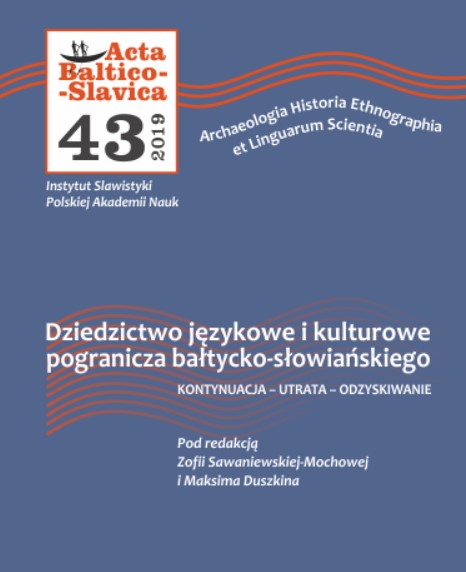Współczesna sytuacja polszczyzny na Bukowinie Karpackiej
The current situation of the Polish language in Carpathian Bukovina
Author(s): Helena KrasowskaSubject(s): Comparative Linguistics, Sociolinguistics, Western Slavic Languages, Philology
Published by: Instytut Slawistyki Polskiej Akademii Nauk
Keywords: Carpathian Bukovina; linguistic heritage; Poles in Bukovina; intergenerational language transfer; Polish in the family; Polish in the domain of religion;
Summary/Abstract: The use and the state of preservation of the Polish language in Carpathian Bukovina is very diverse for a number of reasons. There are villages in which it is not only spoken in the family domain by people invited to take part in this study, but also serves as the basic code of communication in public space: all local residents, including those of origin other than Polish, know it. This is the case in Nyzhni Petrivtsi, Pleşa, Poiana Micului, Stara Krasnoshora, Soloneţu Nou and Terebleche. In turn, the town of Rădăuți and such villages as Bulai, Cacica, Davydivka, Davydivka Zrub, Frumoasa, Gura Humorului, Hlyboka, Păltinoasa, Racovăț, Seret, Sfântu Ilie, Vicşani and Verkhni Petrivtsi have quite a few Polish families; their members, however, speak Polish very rarely, only on exceptional occasions. In some places in the region all that remains is the local memory of Poles who once lived in the area and of Polish speech that could be heard there in the past; this memory, however, seems to be disappearing. We can find traces of their historical presence: houses, cemeteries, churches and so on in Arbore, Banyliv, Budenetsʹ, Dubivtsi, Ispas, Miliieve, Nova Zhadova, Rokytne, Solca, Stara Zhadova, Vashkivtsi and Vytylivka.
Journal: Acta Baltico Slavica
- Issue Year: 2019
- Issue No: 43
- Page Range: 161-175
- Page Count: 15
- Language: Polish

